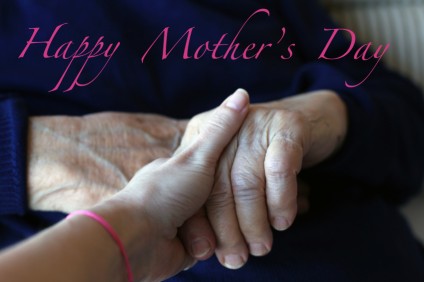At its best, the relationship between mother and child is a transcendent experience.
The love at its core is different than any other.
It is larger and more selfless than any other love. It is the love that leads a mother to nurture a helpless infant through toddlerhood and school age, through teenage angst to adulthood and beyond. It is the love that leads a son or daughter to tenderly nurture a frail parent through the end of life.
[pullquote align=”right” cite=”” link=”” color=”#D33883″ class=”” size=””]It’s not skin to skin that matters in mothering; it’s heart to heart.[/pullquote]
It expands to fill the decades and there is no limit to the miles it can cross and the separations it can endure. It is the love that leads an 80 year old mother to check up on the wellbeing of her 60 year old son and it is the love that leads a 60 year old daughter to turn to her 80 year old mother when either is distressed.
It is deeper than the ocean, wider than the sky and stronger than death.
That’s why the reductionism of natural parenting is so dispiriting to me. It reduces the transcendence of mother love to bodily functions. It reduces both mothers and babies to animal or prehistoric forebears. It fetishizes physical proximity and ignores emotional proximity.
It asks mothers the wrong questions:
Do they breastfeed?
Did they have an unmedicated childbirth?
Did they have vaginal deliveries?
Do they use cloth diapers?
Do they have a family bed?
Do they “wear” their babies?
Yet we know how meaningless these questions are. Think of your own mother. Is your relationship loving, fraught or both? Does the quality of your relationship have anything, anything at all, to do with how she parented you when you were an infant? Or does it depend on how she treated you when you were a child, a teenager, an adult? Do you even know if and how long she breastfed you, if she used cloth diapers, whether she “wore” you? Do you care? Or do you care far more about whether she accepts you for who you are, and does not try to change you into who she is?
We ought to be asking mothers:
Do you love your children?
Do you let them know it?
Do you accept them for who they are or do you try to change them into who you want them to be?
Do you acknowledge and praise their interests, strengths and talents or do you try to channel them toward your interests and talents?
Do you recognize their learning and personality challenges and help them meet them?
Do you spend the time and effort to properly discipline your children so they show kindness and consideration to others?
Do you expect (and provide support if necessary for) them to reach their full academic potential?
Do you provide support and encouragement for them to pursue the sports and hobbies that they want to pursue?
Do you get to know their friends?
Do you accept their choices in lifestyle, marriage, parenting, even when those choices differ from yours?
Do you recognize that they are people, different and separate from you and treat them with the respect that all people deserve?
We can, if we want, have both physical proximity and emotional proximity, but let’s not get confused about which is more important.
It’s not skin to skin that matters in mothering; it’s heart to heart.
Happy Mother’s Day!


